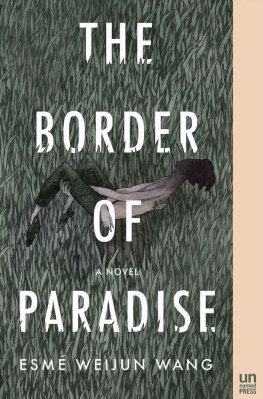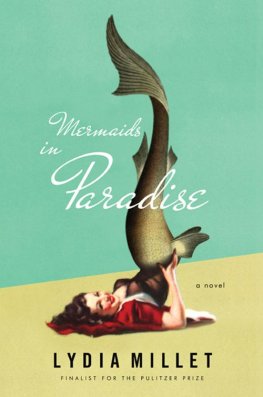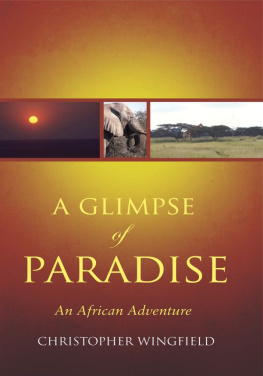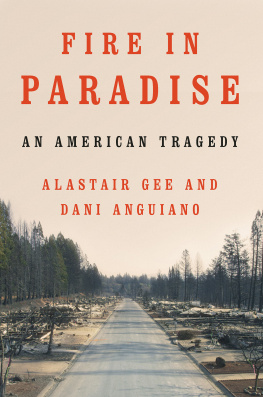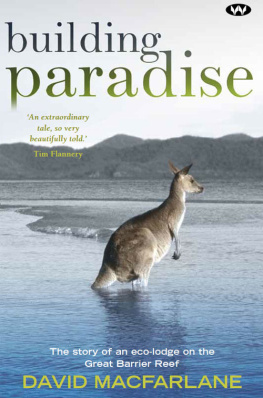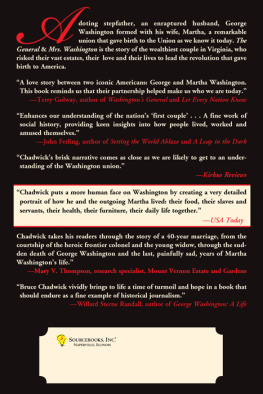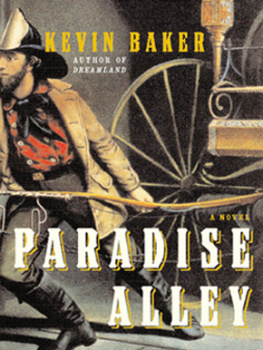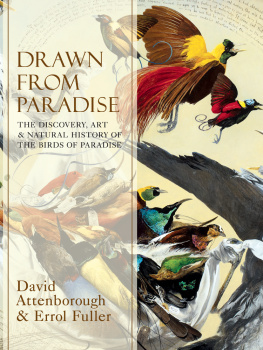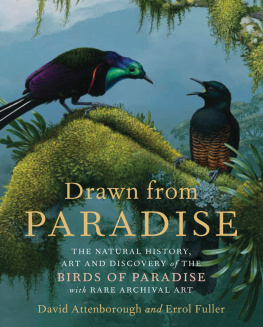
David K. Randall

To Megan, Henry, and Isla
CONTENTS
___________
O N A ROCK-STREWN BEACH TWENTY MILES OUTSIDE of Los Angeles, three men drenched in sweat and grease worked quickly by the light of the sun fading over the Pacific. They prodded three hulking Model Ts into a line across a barren road and began threading chains between their axles, forging a barricade out of glass and steel. The waves crashing a few feet away covered everything with a cold mist and silenced any small talk.
It was July 29, 1917, and time was running short. As the chains jangled into place, each man stole glances at the shadows stretching across the beach and into the mountains. Somewhere out there amid the dark canyons were guards patrolling on horseback, each armed with a shotgun and instructions to use it. That the spot the trio had staked out was technically public land might matter in the eyes of God and the law, but it wouldnt bring much consolation to a dead man. Everyone knew that Rindges men didnt fire warning shots.
A pair of headlights glimmered in the distance. Seconds later, the men could see a car speeding toward them, throwing up a black cloud of dust that hung in the air like an omen. It wouldnt be long now. Rindge was on her way.
DURING THE FIRST PART of the twentieth century, the perfect beaches of Malibu were the last place you could expect to find a celebrity. All of itthe sheer bluffs, the deep canyons, the south-facing shoreline that let you lie on the beach all day long without ever having to squint directly into the sunwas one private ranch, a wild kingdom hugging the edge of the continent. Running nearly twenty-five miles along the coast and stretching only two miles across at its widest point, it owed its borders to a time when Southern California was a half-forgotten outpost on the far side of the Spanish Empire. The crown, faced with colonizing a place where land was so plentiful as to render it nearly worthless, offered vast tracts, known as ranchos, to military officers and noblemen in an effort to put a Spanish stamp on the dry valleys surrounding the tiny settlement known as Los Angeles.
The Rancho Topanga Malibu Sequit, which in time would become the city of Malibu, was one of the first created, and even in a region widely thought of as inhospitable, it seemed the least fit for human enjoyment. The sharp peaks of the Santa Monica Mountains nearly sealed it off from the rest of Southern California, while bears and mountain lions roamed its seventeen steep canyons. Great boulders lay scattered across its beaches like marbles discarded by a wanton giant. Anyone who wanted to reach the Malibu, as the rancho was often called, had to first consult a tide chart and set off on horseback at the right time along the beach. A late start would result in finding yourself marooned on the coastline, the path forward and back flooded by the drift of the ocean. Attempting to cross the mountains, meanwhile, meant fending off rattlesnakes and bandits, both of which were in ample supply.
That this unwelcoming place would in time become known as a paradise filled with movie stars and billionaires was the result of one of the longest and most bitter battles over land in American history. It was a clash that pitted one of the wealthiest families in the country against the encroaching modern world, all set against a backdrop in which Los Angeles seemed to morph overnight from a dusty cow town into a global metropolis. Their fight would go all the way to the Supreme Court, and would culminate in a landmark decision that continues to shape the publics right to access beautiful places. In the process, the battle for Malibu would create the Pacific Coast Highway, a road that has since become a symbol of the good life in California.
At the center of it all were Frederick and May Rindge, a pair who would have needed no introduction in Los Angeles at the turn of the century. Newspapers tracked nearly every aspect of their lives, going so far as to once report that Frederick had stayed home from work with a cold. The couple arrived in the city as newlyweds in 1887, just a few months after a bidding war between the railroads in Los Angeles sparked one of the most frenzied housing bubbles the country had ever seen. It was a marriage of opposites: he was a Harvard-trained confidant of presidents and senators, the rare dreamer who knew what he was doing; she was a midwestern farmers daughter, raised to be suspicious of the seasons. Resolute where he was romantic, guarded where he was generous, May seemed molded from a different clay than her husband. Yet the bond between them would prove to shape history in ways that no one would have expected.
In their first days in the city, Frederick, the only surviving heir of an immense Boston fortune, could barely contain his desire to make a mark in a place that seemed only one step removed from the frontier. Within a decade, he owned more businesses than perhaps any other single person in California, putting the Rindges atop the booming citys hierarchy. He soon purchased the thirteen-thousand-acre Malibu rancho as a country home for his growing family. It was a days ride on horseback from Santa Monica and contained not much more than cattle and fallow fields of lima beans, but he had no need for the ranch to produce income. Frederick, a deeply religious man, saw in its pristine beauty the work of God, and resolved to keep it untouched while Southern California boomed all around.
He would have little time to fulfill his wish, however. With Fredericks sudden death in 1905, May Rindge took control of a fortune that would be worth nearly $700 million in todays money. She vowed to keep Malibu, the place where she had spent the best days of her life with Frederick and their three children, as an unbroken reminder of her husbands love. Her resolve would be challenged within days of his funeral, beginning the struggle that would mark the rest of her life. Over the next decades, May fended off attacks from aggressors ranging from the most powerful railroad bosses in the state, to a mob of armed homesteaders, to fractures within her own family, all in effort to preserve Malibu as she had first glimpsed it while riding in a horse-drawn carriage with Frederick at her side.
This is the story of how the Rindge family came to own and ultimately lose their grasp on Malibu, eventually turning a rugged ranch in the middle of nowhere into a global symbol of fame and fortune. It is a tale of creation and destruction, of triumph and heartbreak, all of which takes place along a stretch of coastline of unparalleled majesty. And, strangely, it is a tale that has largely been forgotten, despite its impact. After the news of May Rindges death was splashed across the front pages of Los Angeles newspapers in 1941, her story was largely pushed aside and replaced with a new mythology of surfers and sunshine that better suited the times. Gidgets arrival on a surfboard in the 1950s beamed a different, happier version of Malibu across the world, enriching the name with a romance that has helped sell everything from Barbie dolls to family sedans. Few driving up and down the Pacific Coast Highway today know anything about the epic fight that created the road, even as the highway itself continues to draw millions of tourists from across the globe.
Until not long ago, I was one of them. I grew up in a suburb about fifty miles outside Los Angeles, and as soon as I could drive, I spent most of my time rolling up and down PCH, looking for waves. It was only after I moved across the country and found myself stuck in a small apartment during one of the worst blizzards to hit New York City that homesickness compelled me to seek out the origins of the road that played a starring role in my childhood. As I read through old issues of the Los Angeles Times and other newspapers from the turn of the century, I kept finding mentions of a long-simmering standoff at the gates of Malibu. I soon found myself immersed in a Los Angeles before freeways, before surfers, and before celebrities. In a place famous for reinventing itself with every passing fad, I had stumbled on the story that underpinned it all.
Next page

